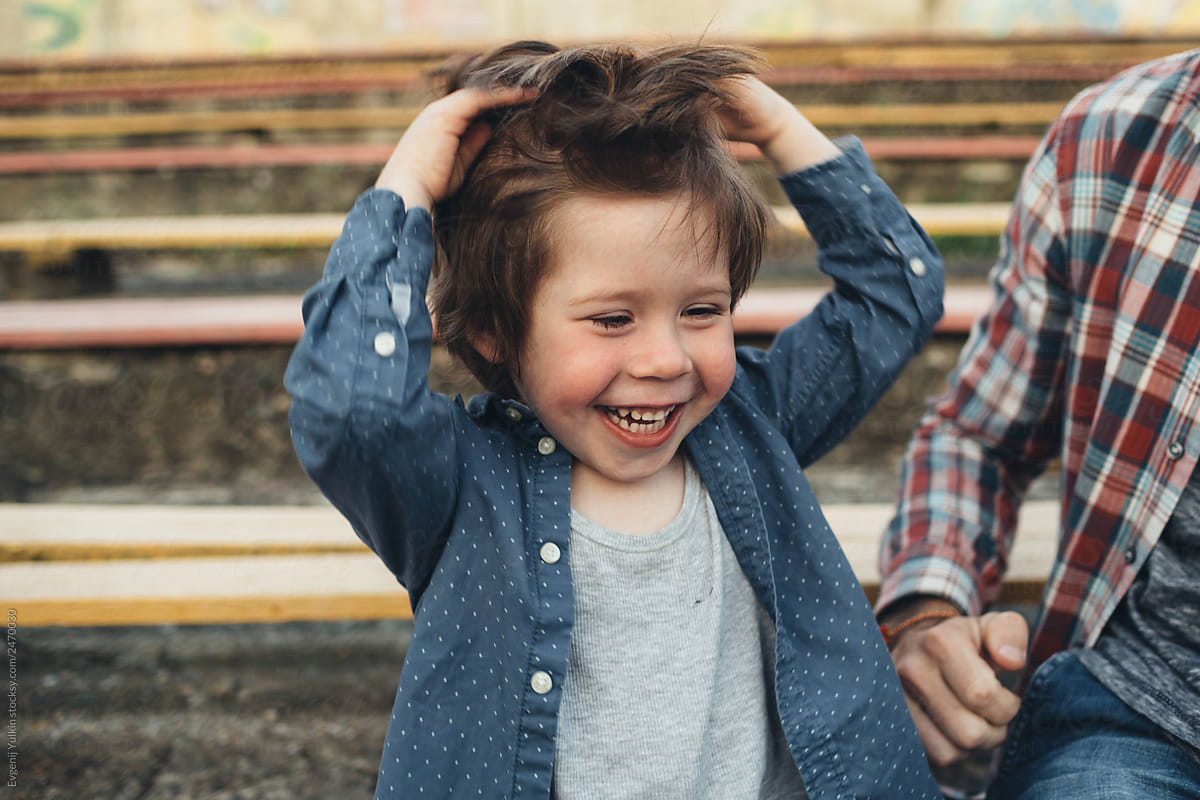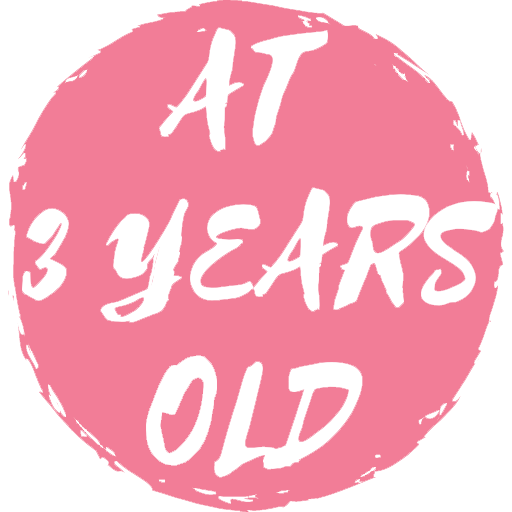What to do when your 3 year old hits you and laughs

If your 3 year old hits you and then laughs, do not think the child is doing something unnatural. It does not mean you are failing at parenting neither does it mean you have raised a “bad’ child. It is only natural and something that almost every toddler does once in a while.
If you are wondering how to react if your 3-year-old hits you and what to do about it, the first order of action would be to take a step back and understand why your child might be behaving the way they are.
Some experts would say that acting out and hitting is a perfectly natural response in a 3 year old. It is a part of growing up and you should not be worried about it at all.
The reason for such behavior may vary from child to child. The most common reason behind such behavior is fear.
When your child is only 3 years old, they are only just beginning to understand the ways of the world. They understand some basic emotion but for most cases, they do not know how to express those emotions. Sometimes these invisible forces of unknown emotions in your toddler might be overwhelming and frustrating to them. In such cases, they act out and hit you if you are in front of them. If they start laughing immediately after hitting, in most cases it would because they are afraid. 3-year-olds often use laughter to dispel the tension in a situation. They might also use laughter to lighten up an intense situation which would be created inevitably if they hit you first.
Sometimes, your 3-year-old might hit you simply because they want to test you and see how you react if they hit you. At this age, everything is an exploration and a fun adventure. They might view this just as a fun game and later, they might laugh simply because they are delighted by this new game of theirs. If this is the case, do not be terrified that your child has become cruel or unsympathetic. Their mind is simply not developed enough to understand all that complexities of human behavior. This is a very natural behavior.
Now that you have a basic understanding of the reasons behind such behavior of your 3 year old, let us discuss how we can handle this situation. The adults need to behave and react in a certain way so as not to encourage the kid to keep up such behavior. If you scold them or punish them, then it is very likely for them to make this kind of behavior a part of their daily routine. Children need to be understood and given the proper attention and care to make them grow out of such behavior. Unless they are exposed to a situation where someone is hit regularly, this behavior will not stick to them.
What to do when your 3 year old hits you and laughs
- Be Alert and prevent them from hitting you as gently as possible
If you feel that your 3 year old is in a bad mood and a lot of negative emotions are building upon them, be alert. Usually, when something like this happens, adults can sense it if they are around the child. In that case, be on your guard and stop them when they try to hit you.
Be gentle and employ kindness while treating your child. Do not be harsh and do not get angry at them. Gently hold their arms down or catch their approaching hands in your fist. Your energy mustn’t come across to them as hostile or aggravating. They need to feel safe around you if you want them to be honest with their emotions. If you stop them from hitting, that particular negative emotion will require a different outlet in your child. It is most likely that they will get uncomfortable initially. They might even get angry. Eventually, they will calm down. After that, if they feel safe around you, they will most likely break down in tears and cry for some time.
Crying is usually good for 3-year-old toddlers. It is often how they communicate their needs and feelings to the adults. If you are hostile in your treatment to your child, the child might feel unsafe to cry and be vulnerable. Instead, they will repress their feelings, which will only lead to more violent outbursts. So be kind and gentle. Let your child express themselves in whichever way they feel comfortable.
Engage in dialogs and talk them down gently
Talking to your child is very important. They are never too young to hold a conversation with you. Do not treat them as a different species altogether. They too can be reasonable.
When your child hits you and laughs, do not lose your calm. Gently ask them why they did it. Do not raise your voice. Let them know that their behavior is upsetting to you and you do not like it. Tell them that it hurts and they do not want to hurt you. Do not be hostile to them but also do not encourage them or join in on their laughter. Let them come to the understanding on their own that hitting you is not something that they should be doing. If you do this every time they hit, eventually they will get over this ‘hitting’ habit.
Things you should be saying
It is important to use a benevolent but stern tone while talking to your 3 year old in such a situation. Things that you can say are:
“If you do that, it hurts me. You should not do that.”
“When you hit me, I get hurt. That is upsetting to me. Why are you laughing?”
If you stop them from hitting you, things you can say to them afterwards:
“I know you like me. So are you sure you want to hit me?”
“If you hit me, I will get hurt. Are you sure you want to do that?”
“What is bothering you right now?”
“What will make you happy right now? What do you want? What can I get you?”
These are some of the ways you can get your child to stop hitting you. It should let them understand the consequences of hitting a person and will give them a sense of responsibility from an early age. It is important to give your child some space and allow them to grow at their own pace.
Remember, no 3 year old is inherently “bad”. Toddlers are a mold of clay that you can build and shape into your liking. They are most likely to imitate you and your behavior. So always be careful about how you talk to them or engage with them. The key to treating children in the right manner is to have compassion, kindness and your undivided attention for them. Make space for them, so that they can come to you with their troubles. Make them feel loved, safe and comfortable no matter what.

Leave a Reply